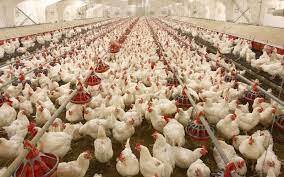
Local food self-sufficiency milestone achieved with WFP Support

The country has made significant strides towards achieving food self-sufficiency, marking a pivotal moment in its agricultural landscape.
Supported by the World Food Programme (WFP), Namibia has witnessed a remarkable increase in domestic food production, reducing its reliance on imports and securing its food sovereignty.
Despite being predominantly a desert nation, has defied the odds by elevating its food self-sufficiency levels to 45%, a feat not achieved in fifteen years. This success is attributed to the unwavering dedication of both smallholder and large-scale farmers, coupled with strategic interventions from the WFP aimed at bolstering the nation’s entire food system.
The reduction in food imports, notably for staple grains such as maize, pearl millet, and wheat, underscores the collaborative efforts between farmers, agro-processors, and industry stakeholders. Lawrence Sampofu, Governor of Zambezi Region, hailed the region’s pivotal role in contributing to white maize and pearl millet grains production, urging farmers to maximize the potential of fertile land and favorable rainfall patterns.
Regulating the movement of agronomic and horticultural products, the Namibian Agronomic Board has played a crucial role in safeguarding local producers against external competition while promoting food self-sufficiency through innovative market strategies and grain marketing schemes.
Dr Fidelis Mwazi, Chief Executive Officer of the NAB, emphasized the commitment to expanding operations, boosting crop production, and reducing import dependence through robust initiatives like the Market Share Promotion (MSP) program.
The WFP’s involvement in promoting climate-smart technology, drought-resistant seeds, infrastructure development, clean energy solutions, market access, and agricultural training has been instrumental in enhancing Namibia’s food systems.
George Fedha, WFP’s Representative and Country Director in Namibia, reiterated the organization’s dedication to complementing the Namibian government’s efforts in scaling up domestic food production and fostering partnerships and investments conducive to achieving food security goals.
With a focus on strengthening the value chain of food systems and accelerating rural transformation, the WFP continues to provide technical support to the government, aligning with the shared vision of attaining zero hunger in Namibia.











































